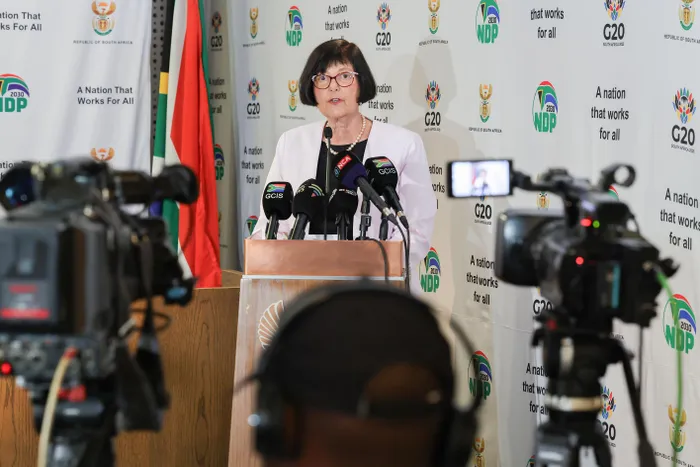South Africa opens passenger rail sector to private investment amid modernisation drive
LOGISTICS

Transport Minister, Barbara Creecy, on Sunday pronounced on Request for Information (RFI) from third-parties as part of the private sector participation to invest in the country's passenger rail services and infrastructure. This will ensure that the country's rail passenger trips target of 600 million by 2030 is achieved.
Image: Supplied/GCIS
Banele Ginindza
The Department of Transport has opened the door to large-scale private sector participation in South Africa’s rail network currently operated by the Passenger Rail Agency of SA (Prasa), inviting investors to help modernise key infrastructure, introduce smart ticketing systems, and roll out fibre optic connectivity along railway lines.
Transport Minister Barbara Creecy on Sunday announced that the department had issued a series of Requests for Information (RFIs) aimed at attracting interest in projects that include:
the modernisation of Prasa’s major maintenance depots at Braamfontein and Wolmerton,
the introduction of a smart, account-based ticketing system across trains, buses, and taxis,
the upgrading of train depots to improve service reliability, and
the deployment of thousands of kilometres of fibre optic cable to support new digital and signaling systems.
Creecy said the government was pursuing a “new generation” of regional trains — faster, safer, and more frequent — linking cities such as Pretoria, Johannesburg, Polokwane, Musina, Mbombela and Durban.
The plan envisions using the existing network for trains running up to 120 km/h, developing new regional lines capable of 160–200 km/h, and exploring a 300 km/h high-speed corridor between Johannesburg and Durban.
"The plan will show the vision we have for rail over the next years to 2050. At this stage, with the difficulties the fiscus has, we will not be able to substantially increase the rail network without bringing in private sector investment," Creecy said.
"We imagine that investment will be in either the form of a concession, a build operate and transfer with the intention that once the concession period comes to en end the infrastructure will revert to ownership of the State."
The Department of Transport has concluded a Memorandum of Agreement with the Development Bank of Southern Africa (DBSA) and the National Treasury, appointing the DBSA as the implementing agent for the department’s Public Sector Participation (PSP) Unit.
The unit, Creecy said, is being capacitated and will soon begin conceptualising bid windows and developing Requests for Proposals (RFPs).
The department has set a four-year target to raise passenger volumes to 600 million rail journeys per year by 2030.
"These RFIs are not tenders," Creecy said. "They are an invitation for the market to help us design the future of rail. Together, we can rebuild confidence in public transport, open up investment opportunities, and connect South Africans to the growth we all deserve."
As part of its digital strategy, Prasa is transforming its extensive fibre optic network into a commercial asset. The network, originally installed for signaling, will now support smart ticketing, depot management, real-time operations, and broadband services.
"We’re opening the door for private partners to help us turn that network into a source of income — by offering broadband and digital services — while strengthening safety and real-time communication across the rail system," Creecy said.
"Each one of these projects are being announced today with the sole purpose of attracting the interest of the private sector to make these projects a reality. We’re moving towards a single, tap-and-go ticket that you can use across trains, buses, and even taxis.
"No more queues or paper tickets, just one account-based system that makes travel easier and helps us manage revenue transparently and efficiently. The private sector has an important role to play to make this a reality. Upgrading Prasa's train depots for better reliability."
Creecy added that private participation in modernising Braamfontein and Wolmerton depots would mean faster train repairs, improved reliability, job creation, and renewed economic activity in surrounding communities.
The first phase of the RFI process, launched in May this year, drew 162 formal responses, including 52 from 12 international countries — a sign of strong global interest in South Africa’s rail revitalisation drive.
Prasa, meanwhile, has recommissioned 35 of its 40 passenger corridors and recorded 77 million passenger journeys in the last audited financial year.
"To continue on the recovery path, Prasa requires additional investment that cannot be carried by the fiscus alone," Creecy said.
"Participation in the RFI process will assist the organization to gather information, innovative ideas, and solutions which will guide future Requests for Proposals for private sector investment in the passenger rail sector."
BUSINESS REPORT